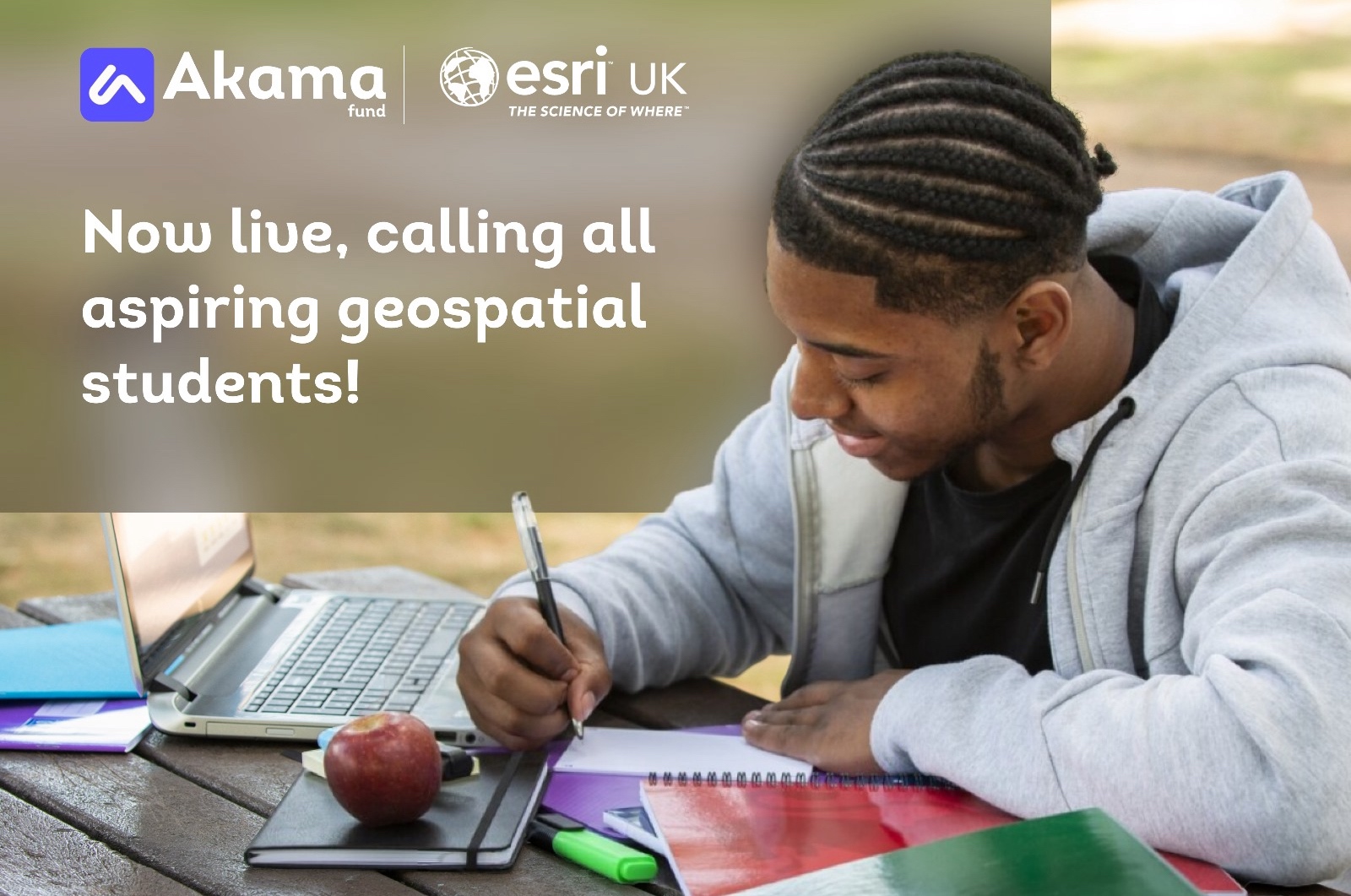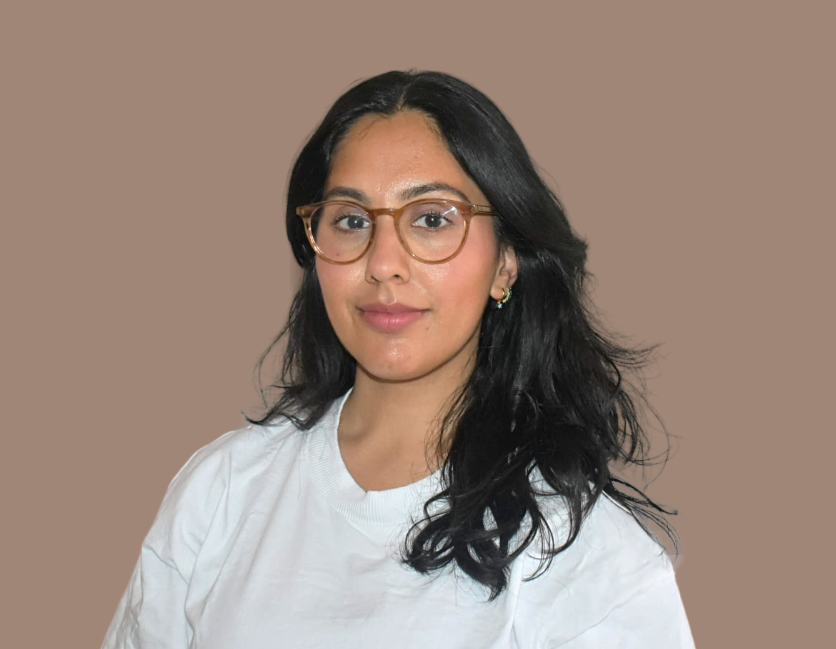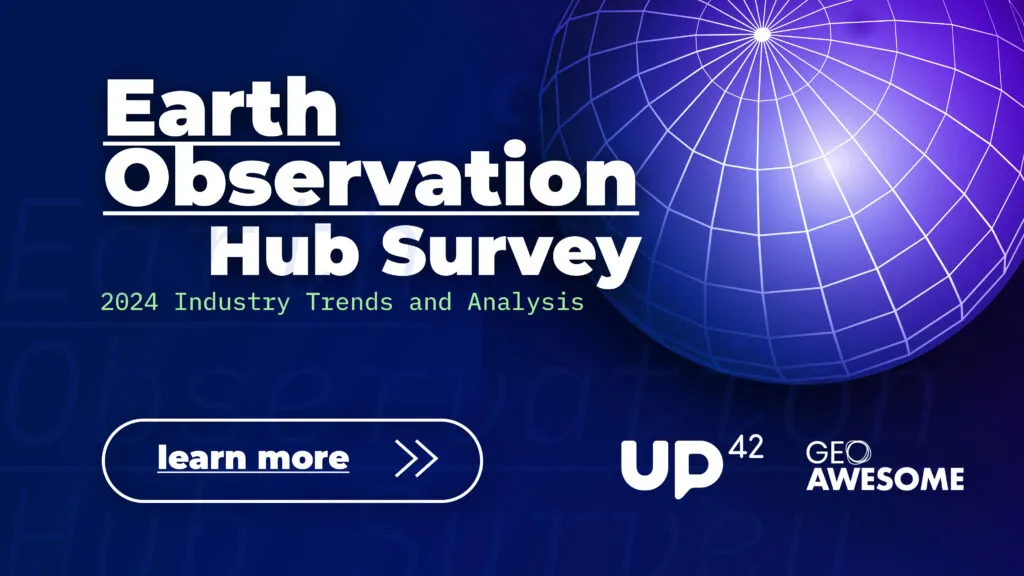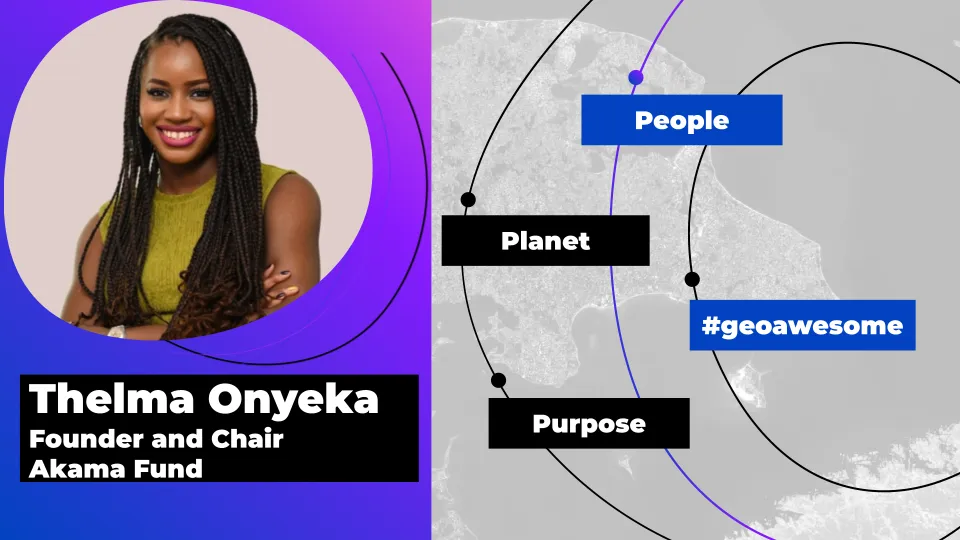
Meet Thelma Onyeka, simplifying providing financial support to students.
On 4 March Esri UK announced it has partnered with Akama Fund, a charity dedicated to supporting students and facilitating accessible scholarships, to create a new scholarship programme for Black and mixed Black heritage students. Designed to support 60 higher education students, in disciplines related to the geospatial industry, the Geospatial Student Accelerator scheme will make awards totaling £30,000 in the first year.
Micro-scholarships aim to help a larger number of Black and mixed Black heritage students. Geoawesomeness’ Nikita Marwaha Kraetzig spoke with Thelma Onyeka, Founder and Chair of Akama Fund, to find out more about empowering the next generation of changemakers:
Thanks for joining us, Thelma! We know that Akama Fund is personal to you, could you share more about why that is and what Akama Fund means to you?
Thanks so much for having me! You may be wondering where the name Akama comes from. It has a deep meaning for me. It’s named after my father who was orphaned as a child and raised by a tiny village in Nigeria. Thanks to the support of this village, he was able to attain a Commonwealth scholarship and higher education in the UK and succeed, changing his life and my own. His name means ‘the village is behind you’. So, if the problem statement is that it takes a village, we are building a village of millions of students like my father around the world.
Akama Fund is a network of philanthropists who believe that when you invest in a student, you’re investing in our collective future. Could you share some examples of the youth education and financial inclusion impacts your team has made?
One of the most significant strides we’ve made with the Akama Fund is our commitment to listening to the voices of hundreds of students, conducting primary research to understand their unique challenges. Our platform is built upon this foundation of empathy, addressing the specific needs of our beneficiaries. Shockingly, 40% of these students reported struggling to locate funding opportunities, and even those who do often face daunting and discouraging application processes. Many perceive scholarships as inaccessible, reserved for the elite, leading to feelings of unworthiness and marginalization.
Our proudest achievement lies in our proactive approach to tackling these obstacles head-on. Through rigorous testing of user experience, we’ve identified and implemented solutions to streamline the application process and dispel misconceptions about scholarship accessibility. Furthermore, the overwhelming support we’ve received from both companies and individuals underscores the widespread recognition of the systemic challenges within scholarship systems. We will give away 10s of 1000s of funding this year through this system.
Additionally, we’re immensely fortunate to collaborate with a dedicated team of Computer Science students from the University of Illinois Urbana as part of the Hack4Impact program. Their firsthand experience with these challenges ensures that our platform’s next iteration will be even more effective in addressing the needs of our beneficiaries.
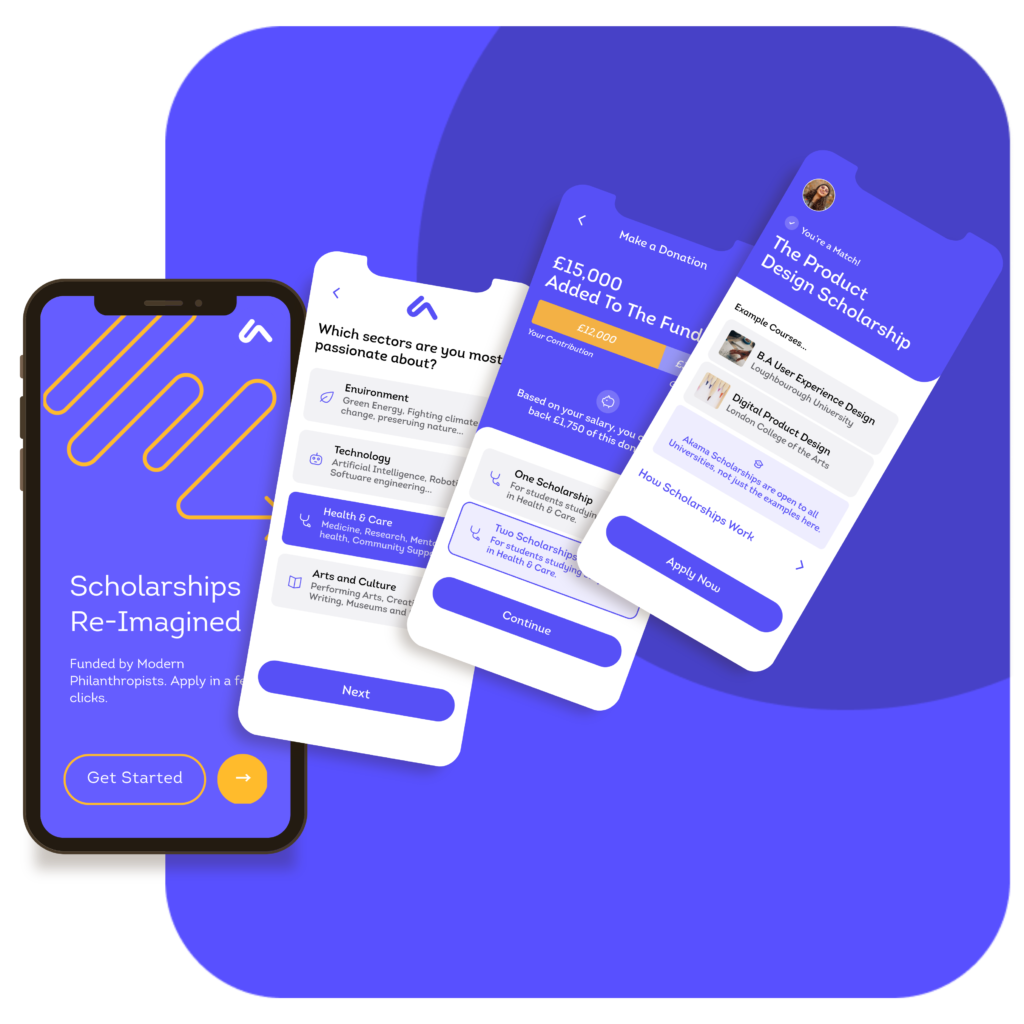
Congratulations on the newly launched Geospatial Student Accelerator Scheme! What are you hoping to achieve through the scholarship and how can it support students in achieving their dreams in the geospatial industry?
Thank you! Esri UK’s goal for this scheme resonates deeply with our mission: they care about the journey of each student, envisioning a future where students they support through it go on to lead and innovate in the geospatial sector.
Through this partnership, we have been able to expand our impact exponentially, moving beyond initial funding limitations to establish micro-scholarships that address the holistic needs of students.
Our program offers structured mentorship, funding for essential field equipment, and access to geospatial influencers who share their insights and experiences. Through these initiatives, Akama aims to redefine scholarship support for the next generation of geospatial professionals, empowering students to navigate and shape their careers with confidence and resilience in an industry that they see is investing in them.
To create the scholarship, Akama Fund has partnered with Esri UK, a global leader in geographic information system (GIS) software. Why is this partnership so significant?
The partnership between Akama Fund and Esri UK holds significant importance for several reasons. Firstly, Esri UK’s market leader status not only lends credibility to our scholarship program but also underscores their commitment to diversifying the geospatial industry.
From the outset, Esri UK has shown genuine enthusiasm and dedication towards our shared goal of empowering students in the geospatial field. Their receptiveness to our student insights and willingness to adapt have been instrumental in shaping the program’s evolution from more traditional funding model to something that is better fit for today’s student population.
Esri UK’s support sends a powerful message to our beneficiaries – that their experiences and success matter, and that the industry is invested in their growth and development.
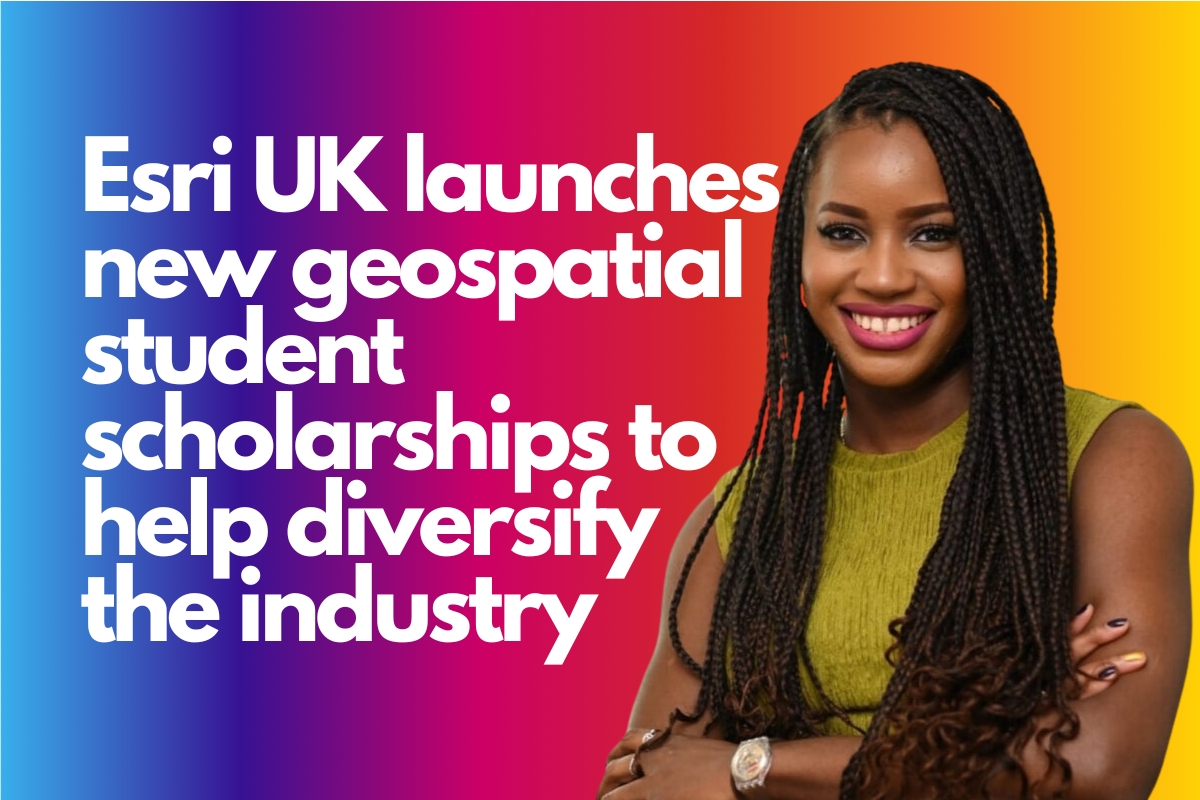
The geospatial industry has a long way to go, as well as many others, to be a more inclusive place where students from all backgrounds can reach their full potential and access the right opportunities. What impact does simplifying access to scholarships have on both industries themselves and the world in a broader sense?
The challenge for so many students who don’t have financial backing, is finding the time to get support.
Students from underrepresented backgrounds face compounding challenges. Beyond the overarching burden of the cost-of-living crisis (as of 2023, 41% of students have contemplated leaving because of financial concerns in the UK), they grapple with uncertainty about their career prospects. The daunting question of ‘Will this lead to a job?’ looms large, compounded by the difficulty in accessing additional funding without any social connections within the industry.
And that’s just part of the dilemma that Akama Fund is here to fix. For companies. How do I get the right talent with the right skills I need to address very complex and challenging business problems? Have we got enough people skilled in this sector and in this country to drive our ambition?
Akama Fund is really addressing this in a win-win way. Students see our platform as accessible, so more are willing to engage. They can quickly see where they are valued earlier on and get to know industries and companies who care. What we are saying is go where you are valued, so that companies know if they aren’t making it easier for the student, they will go elsewhere.
We believe that we’re redefining this dynamic between students and industry.
I’m a big believer that representation matters and ‘you can’t be what you can’t see’. With that in mind, what are the ripple effects of helping students pursue a fulfilling career and helping generations after them achieve the same?
Absolutely, the lack of representation exacerbates students’ sense of isolation, particularly for those from poorer backgrounds. Access to relevant work experiences and industry-aligned education is crucial for their professional development, yet these opportunities often remain elusive amidst constraints to work in a job that helps them make ends meet.
To answer your question: Representation matters for who students see as the givers and how they perceive that relationship dynamic. I believe companies are giving forward not back. These are their future innovators and customers.
Our philanthropists and micro-philanthropists come from everywhere. We are democratizing endowments so that anyone with funds can easily start a scholarship, diversifying what is portrayed as being generous. This is incredibly important. The platform is a cross-generation network of students and philanthropists, transforming the scholarship process by empowering students and supporters to connect, collaborate and invest in education.
Lastly, how can students interested in careers in the geospatial industry apply to the Geospatial Student Accelerator?
Amazing question! They can apply for the Geospatial Student Accelerator here: https://akamafund.org/esriukaccelerator/. We have of course made the application very straightforward to complete! It takes 2 minutes!!
